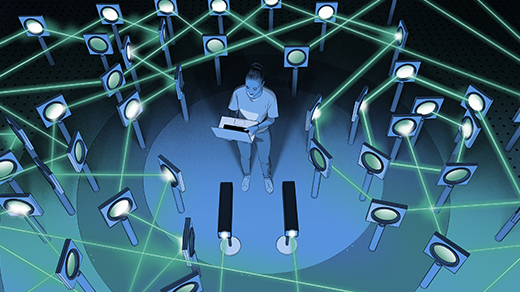What's up in
Gravitational waves
Latest Articles
AI Comes Up With Bizarre Physics Experiments. But They Work.
Artificial intelligence software is designing novel experimental protocols that improve upon the work of human physicists, although the humans are still “doing a lot of baby-sitting.”
How Do Merging Supermassive Black Holes Pass the Final Parsec?
The giant holes in galaxies’ centers shouldn’t be able to merge, yet merge they do. Scientists suggest that an unusual form of dark matter may be the solution.
Hopes of Big Bang Discoveries Ride on a Future Spacecraft
Physicists and cosmologists will have a new probe of primordial processes when Europe launches the Laser Interferometer Space Antenna (LISA) next decade.
The Year in Physics
From the smallest scales to the largest, the physical world provided no shortage of surprises this year.
Extra-Long Blasts Challenge Our Theories of Cosmic Cataclysms
Astronomers thought they had solved the mystery of gamma-ray bursts. A few recent events suggest otherwise.
An Enormous Gravity ‘Hum’ Moves Through the Universe
Astronomers have found a background din of exceptionally long-wavelength gravitational waves pervading the cosmos.
At Long Last, Mathematical Proof That Black Holes Are Stable
The solutions to Einstein’s equations that describe a spinning black hole won’t blow up, even when poked or prodded.
Mass and Angular Momentum, Left Ambiguous by Einstein, Get Defined
Surprising as it may sound, 107 years after the introduction of general relativity, the meanings of basic concepts are still being worked out.
Massive Black Holes Shown to Act Like Quantum Particles
Physicists are using quantum math to understand what happens when black holes collide. In a surprise, they’ve shown that a single particle can describe a collision’s entire gravitational wave.








